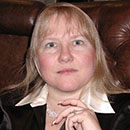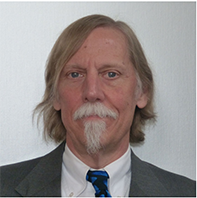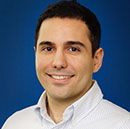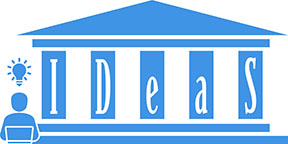The IDeaS Summer Institute is a hands-on training camp that teaches participants about the theories, methods, and tools to identify and combat disinformation, hate speech, and extremism online. This institute is aimed at graduate students, faculty, and personnel from industry, education and government who want to learn more about social-cybersecurity, an emerging field of research and policy.
This is an in-depth workshop on the state-of-the-art in social-cybersecurity. Topics covered include: how social media is used to spread disinformation, hate-speech and extremism online, types of technologies used to identify, combat, or measure the impact of these influence campaigns, and how communities can be more resilient in the face of such campaigns. Sessions will include seminars and technology demonstrations. Additional material for those who want to learn several of the key tools will be available.
Dates:
June 20-22, 2022
Agenda: [Web Version] [PDF] - Tentatitve/Subject to change. The web version of the agenda includes descriptions of presentations in addition to the schedule.
Registration is now open, REGISTER HERE
https://www.cmu.edu/coronavirus/visitor-protocol/
Registration fees:
| Registration Type |
In-person |
Virtual |
| Industry | $2,500.00 | $2,000.00 |
| Government/Military (with ID) | $1,250.00 | $1,000.00 |
| Faculty/Postdocs | $1,250.00 | $800.00 |
| Students |
$925.00 |
$400.00 |
*Please note: We accept checks, VISA and MasterCard for payment. Please make checks out to Carnegie Mellon University.
Registration Scholarships:
There are a limited number of scholarships for PhD students who are women and/or minorities from the US. Conference participants can apply for Graduate Student Scholarships during registration. Level of participation in the conference, need, and diversity will be considered when reviewing applications. Maximum scholarship awarded is $300 to offset cost of attendance.
Who Can Participate in this Summer Institute?
Are there Scholarships Available?
What is in the Curriculum?
The hands-on curriculum illustrates how to use these techniques to study social, organizational and policy issues. Topics will include:
- Introduction to Social-Cybersecurity
-
Success in the Marketplace of Ideas
-
Applying Social Psychology to Cybersecurity
-
AI & Policy- Classification of online media
-
Modeling and Analysis of Information Spread over Multi-layer Networks
- Understanding our Ethical Obligations
- Efficient Over-tinme Analysis of Social Network Data Sets.
- Signal Detection in Cyberspace
- Influence Campaigns in Social Media
What is the CASOS Summer Institute?
Industry: $3,500.00
Government/Military: $2,000.00
Faculty/Postdocs: $1200.00
Students: $600.00
In-person (2 events)
Industry: $4,800.00
Government/Military (with ID): $2,250.00
Faculty/Postdocs: $1900.00
Students: $1300.00
1 virtual and 1 in-person
Industry: $4,000.00
Government/Military (with ID): $2,125.00
Faculty/Postdocs: $1700.00
Students: $1200.00
Summer Institute Teaching
CMU Faculty

Kathleen M. Carley is a professor in the School of Computer Science in the department - Institute for Software Research - at Carnegie Mellon University. She also has courtesy appointments at Engineering and Public Policy , Heinz School, Electrical and Computer Engineering and GSIA.
She has an H.D. from the University of Zurich in Business, Economics and Informatics; a Ph.D. from Harvard University in Sociology; and two S.B.’s from Massachusetts Institute of Technology – one in Political Science and one in Economics.
She is the director of the Center for Computational Analysis of Social and Organizational Systems (CASOS), a university wide interdisciplinary center that brings together network analysis, computer science, and organization science (www.casos.cs.cmu.edu) and the director of the Center for Informed Democracy and Social-cybersecurity (IDeaS).
Kathleen M. Carley's research combines cognitive science, social networks and computer science to address complex social and organizational problems. Her specific research areas are dynamic network analysis, computational social and organization theory, information and disinformation diffusion, adaptation and evolution, text mining, and the impact of telecommunication technologies and policy on communication, disease contagion and response within and among groups particularly in disaster or crisis situations. She and her lab have developed infrastructure tools for analyzing large scale dynamic networks, social media analytics tools and various agent-based simulation systems. These tools include: ORA, a graphical and statistical toolkit for analyzing and visualizing social networks, semantic networks and any high dimensional networks. AutoMap, a text-mining system for extracting semantic networks from texts and then cross-classifying them using an organizational ontology into the underlying social, knowledge, resource and task networks. BioWar a city-scale dynamic-network agent-based model for understanding the spread of disease and illness due to natural epidemics, chemical spills, and weaponized biological attacks. OrgAhead an agent-based model of organizational performance. And Construct, an agent-based model of information spread and belief formation.
She is the founding co-editor of the journal Computational and Mathematical Organization Theory which she now co-edits with Dr. Terrill Frantz. She has co-edited several books in the computational organizations and dynamic network area. She has also served on numerous panels for the National Academy of Science.

Rick Carley, PhD
Electrical and Computer Engineering
L. Richard Carley joined the faculty of the Department of Electrical and Computer Engineering at Carnegie Mellon University in 1984 and has been a major contributor to the research and educational missions of that department. Prior to joining Carnegie Mellon, Carley received his S.B. (1976), S.M. (1978) and Ph.D. (1984) in Electrical Engineering and Computer Science from the Massachusetts Institute of Technology. He has been a key member of the Data Storage Systems Center (DSSC), where he served as associate director for electronic subsystems. He has also been a long standing contributor in the area of analog circuit design most recently participating in the Center for Circuits and Systems Solutions (C2S2).
An internationally known researcher, Carley works in the fields of CAD for analog circuit synthesis, high speed analog signal processing circuits, the design of RF front-end circuits, low power and low voltage digital logic, and the design of microelectromechanical systems (MEMS) and nanoelectromechanical systems (NEMS). Carley is the co-author of two textbooks and the author or co-author of more than 200 book chapters and papers in professional journals and conferences. He has received several awards, including a Best Paper Award at the Design Automation Conference. In addition, he is an inventor or co-inventor on 23 patents. A dedicated educator, Carley has graduated over 40 M.S. students and over 30 Ph.D. students who are now pursuing careers in academia and industry.
For his contributions in research and teaching, Carley was elected Fellow of the Institute of Electrical and Electronics Engineers (IEEE) in 1997. He is a member of the editorial board of the journal Analog Integrated Circuits and Signal Processing and served as associate editor of IEEE Transactions on Circuits and Systems (Part II) from 1993-1996. In 1997, Carley co-founded Neolinear, a Pittsburgh-based high-tech company specializing in analog CAD synthesis tools which was acquired by Cadence in 2004.

Daniel Oppenheimer, PhD
Social and Decision Sciences
Some Facts about Danny Oppenheimer:
- In my lab meetings, I give out weekly honors not just for successes, but also for failure (if you’re not failing some of the time, you’re not taking on sufficiently difficult challenges) and for the person who told the best joke.
- I have been known to open meetings with graduate students by singing the Star Wars theme song. Also show tunes.
- I keep a box of washable crayons in my shower. All my best ideas come to me in the shower - now I write them down and don't forget them.
- When a new graduate student is accepted to the department, they are warned by the current students to never ever ever under any circumstances ever make a bet with me if ice cream is on the line, because when the stakes are ice cream, I never lose. Despite this, there are people all around the country who owe me ice cream…
- I have been in zero gravity. I don't recommend the experience.
- I did my undergraduate at Rice in Houston but can’t do a southern drawl, even to the phrase “howdy y’all”. I got my PhD at Stanford, but didn’t learn to skateboard. I spent eight years in New Jersey at Princeton, but never grew to like Dunkin Donuts. I spend 5 years at UCLA, and didn’t pick up “dude” or “like” as a filler. I don’t have high hopes for “yinz”.
- I have an ongoing bet with a fellow academic over who can get the strangest citation through peer review. My favorite success so far is Count Chocula, but I’ve always got several new ones going through the pipeline.
- Some people say I like corny puns. There’s a kernel of truth to that, I’ve got an ear for puns that pop…

Osman Yağan, PhD
Electrical and Computer Engineering & Cylab
Osman Yağan is an Associate Research Professor of Electrical and Computer Engineering (ECE) at Carnegie Mellon University (CMU). Prior to joining the faculty of the ECE department in August 2013, he was a Postdoctoral Research Fellow in CyLab at CMU. He has also held a visiting Postdoctoral Scholar position at Arizona State University during Fall 2011. Dr. Yağan received his Ph.D. degree in Electrical and Computer Engineering from the University of Maryland at College Park, MD in 2011, and his B.S. degree in Electrical and Electronics Engineering from the Middle East Technical University, Ankara (Turkey) in 2007.
Dr. Yağan's research interests are in modeling, design, and performance evaluation of engineering systems with particular emphasis on communication systems and networks. Specific research topics include wireless communications, security, random graphs, social and information networks, and cyber-physical systems.
Dr. Yağan is a Senior Member of IEEE and a recipient of CIT Dean's Early Career Fellowship.
About the Center for IDeaS:
The Center for Informed Democracy & Social-cybersecurity (IDeaS) was founded at Carnegie Mellon University in 2019 with funding from the Knight Foundation. Led by Co-directors Dr. Kathleen M. Carley, the goal of the Center for IDeaS is to enhance social-cybersecurity to preserve and support and informed democratic society. The use of social media to harm ranges from individuals using it for cyber-bullying, to extremist groups recruiting members, to states using it to encourage polarization and unrest. As more of our lives move online, we are increasingly challenged by hate speech, disinformation campaigns and extremism. IDeaS brings together a community of scholars, practitioners, and policy-makers to develop new theories, applications, educational practices, and policies to foster an informed democratic society in a cybermediated environment. Follow us on Facebook, Twitter and LinkedIn to be informed of seminars, conferences, and institutes hosted by the Center for IDeaS.
